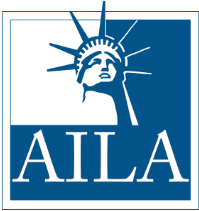What Is the Difference Between Murder and Manslaughter in North Carolina?
 While all criminal charges should be taken seriously, there are some types of offenses that are likely to result in severe penalties, including a long prison sentence, life in prison, or even the death penalty. Because violent crimes involve significant harm to an alleged victim and their loved ones, they are taken especially seriously by law enforcement. Murder and manslaughter can lead to particularly serious penalties, and those who have been accused of these crimes will want to understand the nature of the charges and their options for defense.
While all criminal charges should be taken seriously, there are some types of offenses that are likely to result in severe penalties, including a long prison sentence, life in prison, or even the death penalty. Because violent crimes involve significant harm to an alleged victim and their loved ones, they are taken especially seriously by law enforcement. Murder and manslaughter can lead to particularly serious penalties, and those who have been accused of these crimes will want to understand the nature of the charges and their options for defense.
Murder and Manslaughter Charges Under North Carolina Law
An offense is generally considered to be murder if a person has wrongfully caused the death of someone else. The specific offense a person may be charged with will depend on the circumstances of the case. The laws in North Carolina define murder-related offenses as follows:
- First-degree murder - A person may be charged with this crime if they allegedly killed someone in a manner that was deliberate, willful, and premeditated. This charge will also apply if a person allegedly committed murder through poisoning, starvation, imprisonment, or torture or if murder was committed alongside another violent crime or attempted violent crime, including sexual assault, robbery, burglary, kidnapping, or another felony involving the use of a deadly weapon. First-degree murder is a Class A felony, and the maximum sentence for this offense is the death penalty or life in prison without parole.
- Second-degree murder - A person may be charged with this offense if they allegedly killed someone in a manner that was not deliberate or premeditated. If a case does not meet the standards for first-degree murder, a person may be charged with a Class B1 felony, which has a maximum sentence of life in prison without parole. If a person allegedly killed someone by committing an inherently dangerous act, or if they acted recklessly in a way that showed a disregard for human life, they may be charged with a Class B2 felony, which has a maximum sentence of 40 years in prison.
- Voluntary manslaughter - This offense involves intentionally killing someone else due to circumstances that would cause emotional distress to a reasonable person. A person may be charged with this crime if they allegedly killed a person while they were in the “heat of passion.” This is a Class D felony with a maximum prison sentence of 17 years.
- Involuntary manslaughter - This crime involves unintentionally killing someone else due to reckless or negligent conduct. A person may be charged with this offense if they accidentally killed someone while they allegedly were committing a non-violent crime or if they caused someone’s death while driving under the influence of alcohol or drugs. This offense is a Class F felony, which carries a maximum sentence of four years and 11 months in prison.
Contact Our Smithfield Violent Crime Defense Lawyers
If you have been charged with murder or a related offense, you will need to take the correct steps to mount an effective defense and determine how you can avoid being convicted. At Vasquez Law Firm, PLLC, we will help you determine the best defense strategy, and we will fight to protect your rights from the beginning to the end of your case. Contact our Johnston County criminal defense attorneys at 1-844-YO-PELEO to set up a free consultation today. Hablamos español.
Sources:
https://www.ncleg.gov/EnactedLegislation/Statutes/HTML/ByArticle/Chapter_14/Article_6.html
https://www.nccourts.gov/assets/documents/publications/Sample-list-2017.pdf?MAZluXuS0FWod4nFt7zXecJ8Ifu0qEZx


















